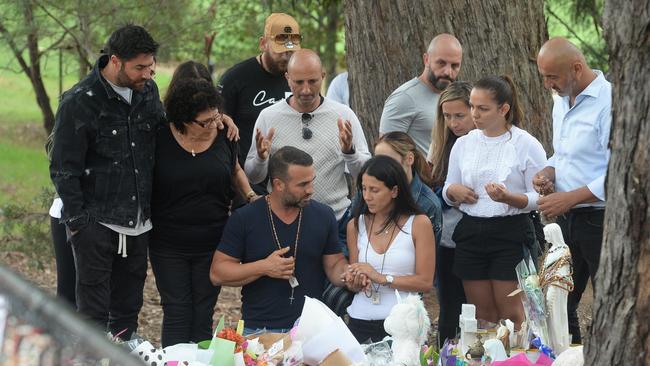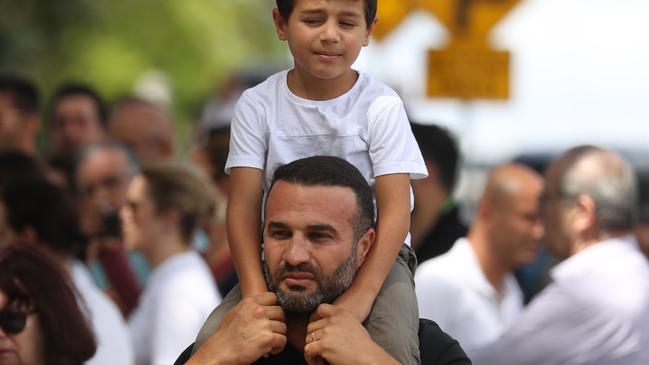Claire Harvey: What we can learn from the Abdallahs and their faith
The strength the Abdallah family have gained from a senseless and avoidable tragedy is a powerful thing for so many of us to see, and spurs on so many, writes Claire Harvey.
Rendezview
Don't miss out on the headlines from Rendezview. Followed categories will be added to My News.
You’d have to be stupid to believe in heaven.
That’s the atheist assessment of people with faith: basically, they’re simple people clinging to a low-fi medieval spirituality because they’re not smart or brave enough to face the thought we’re all alone.
“Heaven … is a fairy story for those afraid of the dark,” the late physicist Stephen Hawking famously once told The Guardian.
“Being an atheist makes someone a clearer thinking, fairer person. They are not doing things to be rewarded in heaven; they’re doing things because they’re right,” said the comedian Ricky Gervais.
Philosopher Richard Dawkins, author of The God Delusion, wrote: “You cannot say ‘I believe in X … because that gives me hope.’ You have to say I believe in X because there is some evidence for X. In the case of God, there is not a tiny shred of evidence for the existence of any kind of god.”
Two Sydney parents this week, I think, made a powerful case for the opposite view: that people who choose to believe in an afterlife are smarter than the rest of us.

Danny and Leila Abdallah, whose children were struck by an allegedly drunk driver while on an innocent Saturday evening trip to buy ice cream, have spoken of the powerful comfort they’ve gained from their Christian faith.
Even seeing her three children’s bodies in the morgue was an opportunity for Mrs Abdallah to be grateful: “I grabbed everyone’s hand and started praying from all our hearts … after praying I felt at peace, I felt like my kids are alive and they can still hear me and are around us,” she said.
Mr and Mrs Abdallah will live out remaining decades of their lives anticipating the wonderful moment when they’ll be reunited with their children in Heaven.
Right now, in their minds, the children are safe and happy in the embrace of a benevolent God. Is that objectively true? None of us can know.
Let’s say it is. The Abdallahs will have gained enormous courage and comfort from the idea. They’ll smile again.
And if it’s not true? Let’s say Heaven doesn’t exist and Mr and Mrs Abdallah persist in a delusion. They’ll cling to comfort that turns out to be false. And when they die, nothing.

So what’s smarter? To have lived with false hope, or to have snuffed it out and accepted the far bleaker truth? I know which I’d prefer as a lifestyle: the one that allows for some glimmer of light.
Perhaps, in fact, strong faith is the pinnacle of human intelligence; not its nadir.
Faith doesn’t make Heaven real. But if I were in the Abdallahs’ circumstances, I hope I’d have the intellectual courage to see goodness where others might find only a void to fill with hatred.
Another frequent objection of atheists is that people of faith are busybody proselytisers who want to convert or condemn nonbelievers. But here’s an example of powerful faith that’s entirely self-contained, that’s not trying to sign anyone up.
The Abdallahs aren’t preaching anything except this: enjoy your children here on Earth, while you have them in your arms.
In the words of Mr Abdallah: “All I ask through this is fathers be fathers and mothers be mothers. People are tired and fatigued and they go to work tired and fatigued but they won’t play with their kids and hang with them fatigued and tired … but if it’s work, they’ll work those extra hours. Just make that time for your families because it’s important.”
Living each moment with love. Making your own heaven, right here on earth, whether you believe or not.
